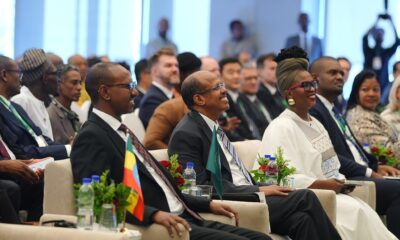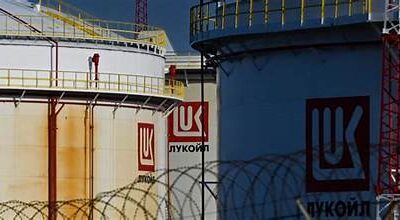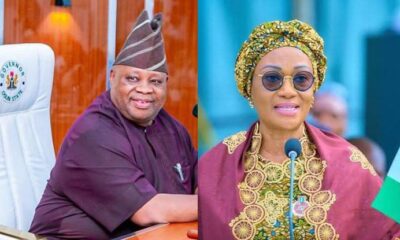Political Issues
Beyond PDP’s Annus Horribilis -By Okey Ikechukwu


Akin Osuntokun`s recent entry on this page captured what the writer termed PDP`s Annus Horribilis. The Latin phrase, annus horribilis, means `horrible year`. Its opposite, annus mirabilis, means `wonderful year`. The central thesis of Akin`s submission is that the year, 2015, was a horrible one for the former ruling party, providing as it did the perfect cocktail of woes for its final diminution. This is evidenced in its loss of internal cohesion and its progressive and resolute march to self-immolation and loss of power.
There is ample truth in the article, which is at once a damning and also analytically thought-inducing intervention in interpreting the crises of the Peoples Democratic Party (PDP). We can take the conversation further by first observing that 2015 may be called not just a horrible year, or annus horribilis, but the year of peak misfortune (annus horribilis in excelcis) for the PDP.
The second observation is that what helps a man to face a reality he has been pretending does not exist may be considered a misfortune only from the angle of his preference for illusion over reality. The PDP needed the experience of this loss in order to regroup, restore party cohesion and discipline and then step out and play its role in further strengthening our democracy – alongside other parties.
To that extent, the year that took it to the cleaners, and which gave it a chance to prove that it need not go to the undertaker, may be its annus mirabilis, rather than its annus horribilis. The German philosopher, Hegel, wrote at length about the interventions of providence in the affairs of men, for their own good, and sometimes in spite of them. He called it the Cunning of Reason, wherein The Absolute accomplishes His own ends even as men exercise their passions in pursuit of all manner of goals they have set for themselves – without knowing the hidden plans not of their own making.
The third observation is that the PDP`s continued failure to regroup and offer a robust and focused opposition beyond the media outings of its publicity secretary, Chief Olisah Metuh, is indicative of gaps in capacity, structures and processes that the party had hitherto been content to cover up and run with, simply because the `gidigidi` of being in power successfully masked a lot of things. Metuh`s efforts have been rather unsettling for the ruling party, just like in the case of Lai Mohammed before the All Progressives Congress (APC) victory.
There is, today, a harvest of currents and counter currents in the political space that should fuel public discourse in matters of state.
Fourthly, the party`s crises and near-crises that led to its present sorry pass was not only long in coming, but was. In speaking of an annus horribilis, therefore, we must first ask whether the most horrible year in the life of an organisation is the day it ran into stormy weather, or the day it took the step, or series of steps, that laid the foundation for its demise. We might even take it still further and ask whether every opportunity missed, or rejected, including every failure to retrace retraceable steps, is not a higher misfortune than the final outcomes of wrong moves. So let us locate the series of “actus horribilis”, or horrible acts, that made the year 2015 the “annus horribilis in excelcis” for the PDP.
At inception the party had all the problems currently bedevilling the APC. Persons and groups of disparate political interests, all of whom had divergent ideas about the purpose of government, came under one umbrella and grabbed political power and leadership. Some wanted to serve the common good and make the nation a better place. Others were not so inclined. For the latter group, anyone who saw politics as a way of serving the people should find his way to a monastery – preferably a remote one – shave his hair and contemplate the stars.
When Nigeria`s old boys association, which has held political and economic power in one form or the other since independence, used the PDP to pluck the presidential ticket from the easy grasp of former Vice-President Ekwueme and give it to Olusegun Obasanjo a new game with old and masked players began. Early signs of trouble emerged immediately after Obasanjo won the presidential election. The president elect announced that anyone who put money into his election should see it as a contribution towards national development and good governance. This ran contrary to the belief, hopes and aspirations of those who `invested` in his candidacy.
Cries of `foul, foul` rent the air, as the party leadership and elected officials and members at all levels protested. One senator elect in particular used the media to assure the then president elect that he was dreaming and that he should wake up to the fact that they all had different reasons for going into politics. It was thus that the president elect fully mobilised homegrown opposition, from within his own party, against himself before he was even sworn in. It then became a question of `we have to find a way of dealing with this obstacle of a man, one way or another`. Meanwhile, the man in question had become the leader of the party, the soul of the party and the grundnorm of all its values.
The PDP people who brought the masquerade to the village square were shocked to see that the entity was now on its own. They did not envisage that the masquerade, `their own` masquerade they dressed up and brought out, would either cut the leash or wear out those holding the leash and go its way. Is it not the same shock that the APC chieftains who dressed the Buhari are facing today? While the PDP became `the opposition` in a legislature in which it had absolute majority, the APC is faced today with a legislature in which its lack of internal cohesion made it possible for the opposition to determine who should be Senate president.
Obasanjo`s anti-corruption bills were repeatedly clobbered and modified by `his own` legislature that should actually have claimed ownership of anything coming from him. He faced impeachment threats not from the moon, but from the party of which he was standard-bearer. Let us hope that the APC will fare better with Buhari. The president`s recent media chat saw him using the First Person Singular in determining what should be state responses to national issues. This is a very bad sign. It will create problems for him sooner than later. He seems poised to tread the old and unhelpful paths that brought President Obasanjo dangerously close to being perpetually at policy war and personal war with everyone who disagreed with “his” programme for Nigeria.
That the PDP was at war with, and within, itself (and that the APC is heading the same way) became evident as the life of the regime progressed. The two tendencies that grew within the party, the government and their processes had on one side Obasanjo (like Buhari) and his ideas of the Nigeria he believed was good for all of us and, on the other side, party members, political investors and sundry freeloaders (like many South-west promoters of the APC), for whom the president is an insufferable obstacle to their personal and group economic aspirations.
One strong idea Obasanjo shared by Buhari, is the tendency to focus on what he considers `good for Nigeria` without sufficient attention to the political economy of the environment and the possibility of sustaining the new. This was amply manifested in Obasanjo`s most progressive Minister of Transport, Chief Ojo Maduekwe, among others. Like him or not, Ojo always meant well; but has an unfortunate proclivity for reprehensible enthusiasm that ends up giving a good idea a bad face before it has time to be understood.
Without waiting for the presidential go-ahead, Ojo took the commendable step of inaugurating the boards of all the parastatals under his ministry. Reason: allowing the minister to act as the chair gave him arbitrary exercise of discretion in the award of contracts. He would rather have a properly constituted board of competent persons and stakeholders handle this while he faced policy leadership as Minster of Transport.
Brilliant! Absolutely brilliant and a good governance index! When he told board members that he would `break the legs` of anyone who took liberties with the resources available to their respective agencies and parastatals, Ojo was reported to Obasanjo for insolence and for misreading the reason for board appointments. He was loyal to Nigeria and had zero tolerance for corruption – on his own!
The early ripples in the PDP became the Third Term waves that nearly dismembered Nigeria. Those waves became the typhoon that swept late President Umaru Musa Yar`Adua into office. Then it turned into the tsunami that swept the PDP and Jonathan out of office and out of power seven months ago. As for “… the confounding exhibition of an abject lack of competitive spirit in Jonathan reinforced by a near reluctant mobilisation of his political party …”, one can only share Akin`s surprise and even express consternation.
Perhaps it was part of providential acts of `cunning` by the Absolute, to redefine our nationhood. As we speak of PDP`s annus horribiis today, the APC should note that it is vigorously assembling the very building blocks that brought the PDP to where it is today.










